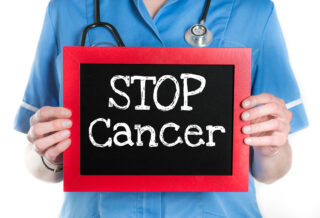
Annapolis Integrative Medicine
1819 Bay Ridge Avenue
Suite 180
Annapolis, MD 21403
(410) 266-3613

More Cancer Awareness Articles
Cancer: Improving the Odds

Cancer remains one of the leading causes of death in the United States. In 2025, the American Cancer Society estimates 2,041,910 new cancer cases and 618,120 deaths will occur in the U.S.
The most common cancers differ by gender:
- Men: prostate, lung, and colorectal cancer.
- Women: breast, lung, and colorectal cancer.
A lesser-known fact is that lung cancer is the leading cause of cancer death in women, claiming more lives each year than breast cancer.
Genetics and Risk
The genes we inherit play a significant role in cancer risk. While we cannot change our DNA, research shows that lifestyle choices and proactive medical care can dramatically influence both the likelihood of developing cancer and the chances of survival.
Weight, Activity, and Nutrition
Excess body weight is one of the strongest modifiable risk factors for cancer. About 74% of U.S. adults have overweight or obesity, including 40% with obesity. Maintaining a healthy weight lowers the risk of several cancers, including colorectal, breast (postmenopausal), kidney, and pancreatic cancer.
Physical inactivity also increases cancer risk. Regular exercise not only helps prevent several cancers but also improves survival after a diagnosis.
Diet matters as well: eating a colorful variety of vegetables and fruits, limiting processed and red meats, cutting back on saturated fats, and keeping alcohol intake low all reduce cancer risk. Alcohol alone accounts for about 5% of U.S. cancer cases and 4% of cancer deaths.
Vitamin D and Other Factors
Vitamin D deficiency is common, particularly among people with darker skin, since melanin reduces vitamin D production from sunlight. However, randomized trials show vitamin D supplementation does not reduce overall cancer incidence, though some studies suggest a small reduction in cancer mortality. It is best to discuss vitamin D testing and supplementation with your physician if you may be at risk of deficiency.
Tobacco use remains the single largest preventable cause of cancer, while environmental exposures (such as certain chemicals and radiation) also contribute to risk.
Improving Your Odds
Here are steps you can take to lower your risk and improve survival:
- Live a healthy lifestyle. Eat a wide variety of fruits and vegetables, limit red and processed meat, exercise regularly, avoid smoking, and drink alcohol only in moderation.
- Stay up to date on screenings:
- Breast cancer: Mammogram every 2 years for women ages 40–74.
- Colorectal cancer: Screening starting at age 45, with colonoscopy or other approved tests. However those with a family history of colon cancer or other signs or symptoms should consider earlier screening. I refer younger people for screening who have a family history, abdominal pain, iron deficiency or blood in their stool, and weight loss.
- Lung cancer: Annual low-dose CT for adults 50–80 with ≥20 pack-year smoking history who currently smoke or quit within the past 15 years. And non smokers may also want to consider screening for Lung Cancer given the rise in this cancer in people with no history of smoking.
- Prostate cancer: Men ages 55–69 should discuss PSA testing with their doctor; routine screening is not recommended after age 70. However I test people regularly and think this is the best path.
- Cervical cancer: Women ages 21–29 should have cytology every 3 years; ages 30–65 may choose cytology every 3 years, HPV testing every 5 years, or both every 5 years.
- Skin cancer: The evidence is insufficient to recommend routine full-body screening for asymptomatic adults, but any new or changing skin lesion should be evaluated promptly.
- Know your family history. If cancer runs in your family, talk with your doctor about earlier or additional testing, and consider genetic counseling.
- Maintain a healthy weight. Weight loss can lower cancer risk, and new medical therapies now make weight management more achievable.
- Listen to your body. If you notice a lump, new pain, or a persistent change in your health, don’t ignore it. Early detection gives you the best chance at effective, potentially curative treatment. You must advocate for yourself and feel free and empowered to get a second opinion if you are still concerned or not satisfied with the evaluation and recommendations you have received.
Final Thoughts
While we cannot control our genetics, we can control many of the factors that influence cancer risk. By maintaining a healthy lifestyle, keeping up with recommended screenings, and seeking care promptly when something feels wrong, we can greatly improve our odds against cancer
Other Articles You May Find of Interest...
- Causes and Solutions for Painful Lumps in Your Armpit
- SEQUOIA Study Insights: Zanubrutinib’s Efficacy in Treatment-Naive CLL/SLL Patients
- Navigating Life Expectancy After Thyroid Removal: What to Expect?
- Coping with Chemo Rash: Insights and Visual Guides
- Could Your Nighttime Hip Pain Be a Sign of Something More Serious?
- Are Leg Cramps a Sign of Cancer? Understanding the Symptoms
- Navigating Life After a Positive Cologuard Test: What Are Your Next Steps?














